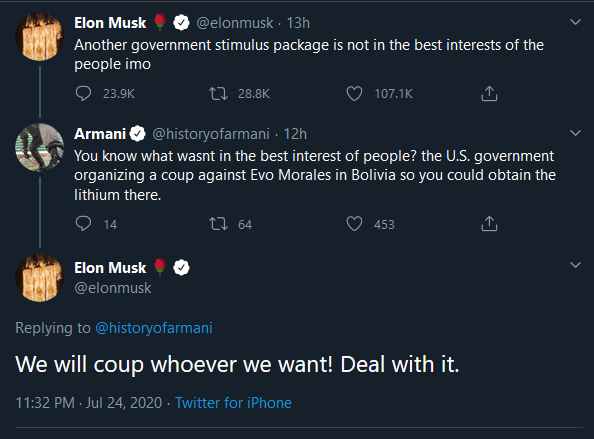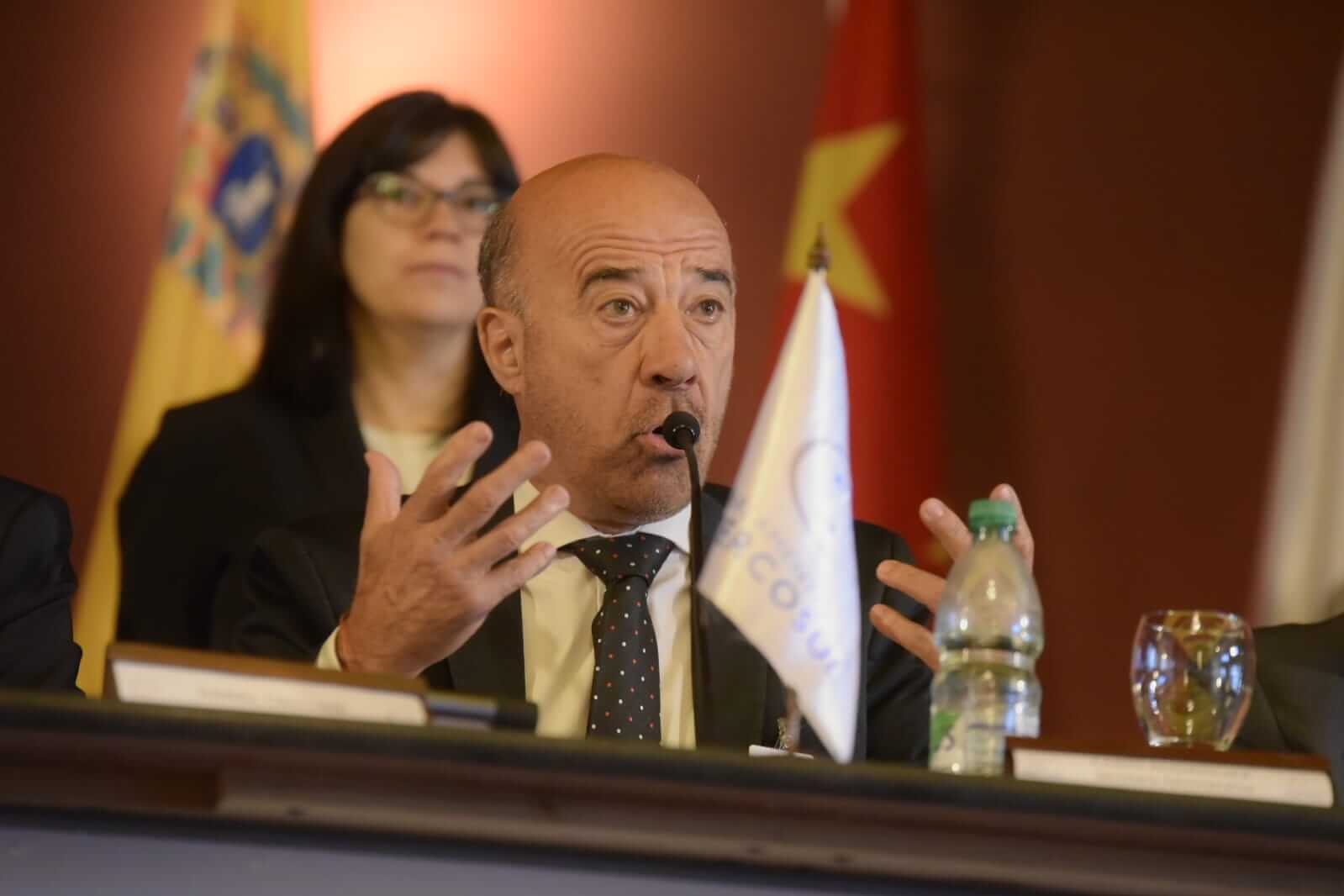The President of the South American Parliament (Parlasur), Oscar Laborde, announced over the weekend that the body will initiate an investigation into the role of Organisation of American States’ (OAS) Secretary-General Luis Almagro in the 2019 coup in Bolivia that led to the ouster of erstwhile President Evo Morales.
Morales led the nation from 2006 to 2019 and won three consecutive elections and ran for a fourth term in October 2019 prior to his resignation in November. This was in contravention of the three-term limit, a law that was reinforced by the fact that citizens voted against a constitutional amendment that would remove this limit in 2016. Nevertheless, he contested the election, and was declared the winner. However, several alleged irregularities prompted suggestions of vote-rigging, resulting in widespread protests, ultimately leading to his resignation on November 10 under military and public pressure.
It is widely believed that this coup was backed by the US, and these claims have only been strengthened by Tesla and SpaceX CEO Elon Musk tweeting, “We will coup whoever we want! Deal with it.” This was in response to someone tweeting at him, “You know what wasn’t in the best interest of people? The U.S. government organizing a coup against Evo Morales in Bolivia so you could obtain the lithium there.”

Given the US’ control over the OAS, it has been suggested that Washington leveraged its power over regional actors and multilateral organisations to force regime change in Bolivia in order to gain access to crucial resources.
The OAS is a continental organisation of 35 countries that aims to promote diplomacy and trade between states in the Western Hemisphere. Headquartered in Washington DC, the organisation has often been accused of being an arm of the US government, as evidenced by the exclusion of Cuba, and the withdrawal of Venezuela in 2017.
In fact, the OAS was first formed as a coalition of anti-communist countries in 1948 during the beginning of the Cold War. Moreover, the US Agency of International Development (USAID) wrote in 2018 that the OAS “promotes U.S. political and economic interests in the Western Hemisphere by countering the influence of anti-U.S. countries such as Venezuela” as a justification for the approval of funding by Congress.
The OAS employed two external consultants to investigate irregularities in the election that saw Morales re-elected. Yet, although they released a statement expressing the OAS’ “deep concern and surprise at the drastic and hard-to-explain change in the trend of the preliminary result”, their findings were never published, which the Parlasur’s president argues demonstrates the absence of fraud.
In fact, after Morales won the election based on the first and official count, he agreed to a “binding audit” by the OAS. The Organisation released a list of “technical and procedural problems” with the election, but curiously could not replicate its statistical findings. Although Morales agreed to new elections, he eventually bowed down under the pressure of the military and the police, as well as international actors such as the US and the OAS.
After Morales stepped down, Senator Jeanine Áñez, leading a coalition of the Democrat Social Movement party and four other parties, assumed the interim presidency. However, in the presidential elections in October, Morales’ party, Movement Toward Socialism (MAS), claimed an overwhelming victory. This, Lobarde says, further invalidates claims of voter fraud from last year. He asks, “If there had been a fraud, why do the same political representations get 55 percent (MAS) and 29 percent (Citizen Community) a year later? The numbers are clear and concise.”
The Washington Post’s Gabriel Hetland posits that although an independent study by the Washington-based Center for Economic and Policy Research (CEPR) did not conclusively prove that the election was without fraud, it did, however, demonstrate that the “OAS is entirely unjustified in its declarations that it has proved the existence of fraud and intentional manipulation of the vote” and that the “OAS’s claim of fraud is unsubstantiated”.
Laborde’s calls for an investigation have been supported by both Argentina and Mexico, with the latter requesting and investigation into Almagro in February of this year. These allegations have also been backed by independent experts such as CEPR’s Mark Weisbrot, who has said “It is long past time for a thorough and independent inquiry into the OAS’s role in last year’s coup in Bolivia,” adding, “Throughout the Trump presidency, Almagro cozied up to the extreme right in the hemisphere, including here in Washington.”
These developments have informed the Parlasur’s interest in launching an investigation into Almagro’s complicity in the 2019 Bolivia coup. Parlasur is the parliamentary institution of the regional intergovernmental trade bloc Mercosur, which is made up of full members Argentina, Brazil, Paraguay, and Uruguay and associate members Bolivia, Chile, Colombia, Ecuador, Guyana, Peru, and Suriname.

